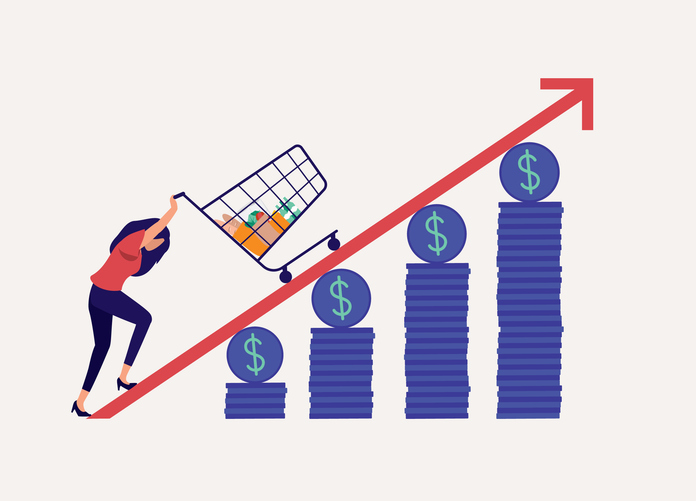Considering the agricultural benefits being secured by the EU through its Association Agreement with Ukraine, one wonders if NATO expansion in Ukraine was a bluff. The United States is getting everything it wants with Ukraine’s farmland and infrastructure. The deep state is in Ukraine, and it’s agribusiness. Cargill is a key player in Ukraine and other NATO countries. Cargill may have had something to do with the new members of NATO, Sweden and Finland. It may also have had something to do with Switzerland’s decision to sanction Russia.

The curious case of Switzerland
On February 24, 2022, the day Russia invaded Ukraine, the only remaining neutral countries in Europe were Austria, Ireland, Sweden, Finland and Switzerland. Now there are only three. Finland joined NATO in 2023 and Sweden joined on March 7, 2024. Today, there is support for NATO membership in each remaining neutral country. Russia’s invasion of Ukraine is cited as a reason to give up neutrality. But a majority in each country values neutrality. Curiously, Switzerland resisted joining NATO, but it imposed sanctions on Russia. Some say this behavior is not consistent with Switzerland’s neutrality.
The one thing that makes sense of the behavior of both Switzerland and the United States is agribusiness. Cargill has had a presence in Ukraine for more than two decades. Cargill is a private US company, but Cargill International SA is located in Geneva, Switzerland. Maybe Switzerland stands to gain from Ukrainian farmland. NATO expansion in Ukraine may be a bluff, but Ukraine’s real estate market is for real.
Agribusiness is part of the deep state
On January 12, 2014, pro-Western Ukrainians descended on Kiev’s Independence Square to protest President Viktor Yanukovych’s government. On the same day, Cargill paid $200 million for a stake in Ukraine’s UkrLandFarming. Two months later, in March 2014, J. P. Sottile identified the coup in Ukraine as a corporate annexation project. It can also be argued that it was a land grab. Under Yanukovych’s regime, the Ukrainian real estate market had been closed. Volodymyr Zelenskyy opened it in June of 2021.
According to Sottile, agribusiness is part of the deep state. Normally the deep state is associated with the oil and defense industries, but this association ignores America’s heavy subsidization of agriculture. For two decades, the Cold War alliance between corporations and foreign policy has prepared the ground for Ukraine’s break with Russia.
I would argue that companies like Cargill were instrumental in this preparation. This pattern was already established during World War II. In 1942, Cargill began to build ships for the US Navy and towboats for the Army. More recently, in March 24, 2023, Cargill CEO Brian Sikes met with USAID administrator Samantha Power to discuss “areas of collaboration in support of USAID’s efforts to bolster democratic bright spots, support farmers in Ukraine in response to Russia’s full-scale invasion of the country, and galvanize action on climate-smart food systems.”
Business is good in Ukraine
There have been claims of business instability in Ukraine, but these claims are deliberately misleading. Business activity in Ukraine is brisk. However, Morgan Williams, President and CEO of the US-Ukraine Business Council, has been claiming that Ukrainian businesses are not making future plans or expanding operations. He has to know this is not correct. Since 1992, Williams has been advising American agribusinesses on investing in the former Soviet Union. In addition to his position with the US-Ukraine business Council, he is Director of Government Affairs at the private equity firm SigmaBleyzer. Finally, Van A. Yeutter serves with him on the US-Ukraine Business Council’s Executive Committee. Yeutter is the Vice President for Corporate Affairs at Cargill.
The UkrLandFarming investment wasn’t Cargill’s first purchase in Ukraine and Russia. In December 2013, Cargill announced the purchase of a stake in a Black Sea grain terminal at Novorosslysk on Russia’s Black Sea coast. Aside from its ability to scope out and purchase Ukrainian businesses, Cargill and other big agriculture companies, have benefitted from volatility in food prices, a direct result of the Ukraine War. Today, the Cargill family is America’s wealthiest agricultural family.
Where do 21st Century Progressives fit in this picture?
In 2015, I cited agribusiness as a key focus for progressives. I now believe everything that has happened since that time has been a distraction from this focus. When you also consider its nefarious activities in foreign countries, it is clear that agribusiness is a malevolent presence on the earth.
Agricultural policies are central to human liberty, autonomy and survival. Without the ability to grow quality crops, we can’t provide the world’s population with its most basic requirement–sustenance. In addition, we can’t manage land and water resources or address climate change. Finally, we can’t plan community structure, or provide gainful employment for community members. Agribusiness corporations have usurped all of these functions.
It’s good that this focus has become more clear. Unfortunately, now we know that no one is listening to us.